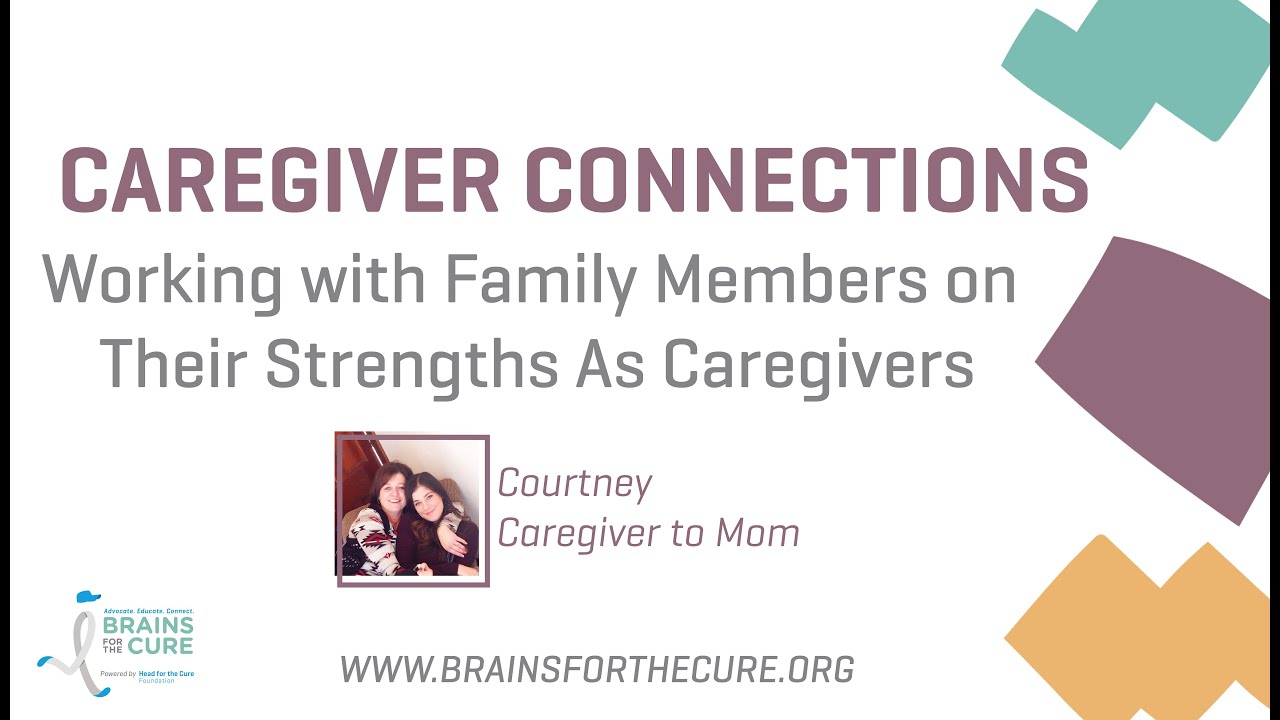
Telling Your Close Friends and Family
Receiving a brain tumor diagnosis is a difficult moment for you or your loved one.
April 11, 2024

Receiving a brain tumor diagnosis is a difficult moment for you or your loved one.
April 11, 2024

Caring for a loved one with a brain tumor is a deeply rewarding yet challenging role that requires caregivers to balance a multitude of responsibilities. From providing physical care and emotional support to managing household tasks and navigating medical appointments, caregivers often find themselves juggling numerous obligations. In this article, we explore practical strategies for caregivers to maintain balance and prioritize their well-being while caring for a brain tumor patient.Understanding Caregiving Obligations:Physical Care:Caregivers may be responsible for assisting with activities of daily living, such as bathing, dressing, and feeding.Administering medications, managing symptoms, and monitoring vital signs are also common tasks.
April 11, 2024

Caring for a loved one with a brain tumor is a trying experience that extends beyond the patient-caregiver relationship, impacting interactions with spouses, children, friends, and extended family members. Here, we dive into the complex dynamics of caregiving and explore how it effects relationships across different aspects of life. Spousal Relationships Caring for a spouse with a brain tumor often leads to profound changes in the marital relationship:Role Reversal: Caregivers may find themselves assuming roles traditionally held by their spouses, such as managing household finances, making medical decisions, and providing emotional support.
April 11, 2024
A brain cancer diagnosis can be overwhelming for both the patient and their loved ones. In such challenging times, the support of friends, family, and the community can make a significant difference. One practical and heartfelt way to offer support is through organizing a meal train. Meal trains provide nourishment and comfort during difficult times, allowing the patient and their family to focus on healing and recovery. Here’s a comprehensive guide to understanding and participating in meal trains during a brain cancer diagnosis.
April 11, 2024
Facing a diagnosis of brain cancer can be overwhelming, not just emotionally and physically, but also financially. Fortunately, there are government assistance programs designed to provide support to individuals and families dealing with the challenges of brain cancer. In this article, we’ll explore Medicaid, Medicare, Social Security Disability Income (SSDI), and Social Security Income (SSI) in the context of brain cancer, outlining eligibility criteria, benefits, and how these programs can offer crucial assistance.MedicaidMedicaid is a joint federal and state program that provides health coverage to low-income individuals, including those diagnosed with brain cancer.
April 11, 2024
Healthy communication between a caregiver and a brain tumor patient is essential for providing effective care, fostering mutual understanding, and maintaining emotional well-being. Here are some tips for promoting healthy communication and topics to discuss:Tips for Healthy Communication:Active Listening: Practice active listening by giving the patient your full attention, maintaining eye contact, and acknowledging their feelings and concerns.Empathy and Validation: Show empathy by recognizing and validating the patient’s emotions and experiences. Avoid dismissing or minimizing their feelings.Openness and Honesty: Be open and honest in your communication, but also sensitive to the patient’s emotional state.
April 11, 2024
Receiving a diagnosis of brain cancer can be an overwhelming experience, bringing about a flurry of emotions and concerns, including those related to family planning. Whether you’re a male or a female, understanding the various family planning options available post-diagnosis is crucial for making informed decisions about your future. In this article, we’ll explore different approaches to family planning from both male and female perspectives, considering the unique challenges and considerations each gender may face.Male Perspective For men diagnosed with brain cancer, preserving fertility, and exploring family planning options can be a complex journey.
April 11, 2024
While it can be difficult to think about, financial planning after a brain tumor diagnosis is important. Having things in place, like a Will and Power of Attorney, could decrease your stress. It might also help you spend more quality time with your family and friends.When planning your finances, you may start to consider some legal decisions. For example, who has control of your finances now and in the future? Income and Employment Evaluate the impact of the brain tumor diagnosis on your ability to work and earn income.
March 26, 2024

Caring for a loved one with a brain tumor comes with its unique set of challenges, one of the most prominent being cognitive impairments. These cognitive changes can manifest in various ways, including memory loss, difficulty concentrating, and impaired decision-making, often leading to frustration for both the patient and the caregiver. In this article, we explore the experiences of caregivers grappling with cognitive impairments in their loved ones and strategies for effectively managing frustration amidst these challenges.Understanding Cognitive Impairments: Brain tumors can affect cognitive function in diverse ways, depending on factors such as tumor location, size, and treatment modalities.
March 18, 2024
Short-term and long-term disability insurance benefits can provide essential financial support for brain tumor patients and their caregivers who are unable to work due to the medical condition. Here’s an overview of how these disability programs work:1. Enrollment and Coverage:Employer-Sponsored Plans: Many employers offer short-term and long-term disability insurance as part of their employee benefits package. Employees may enroll in these plans during open enrollment periods or when they first become eligible for benefits.Individual Policies: Individuals can also purchase private short-term and long-term disability insurance policies from insurance companies to supplement or replace employer-provided coverage.
March 18, 2024